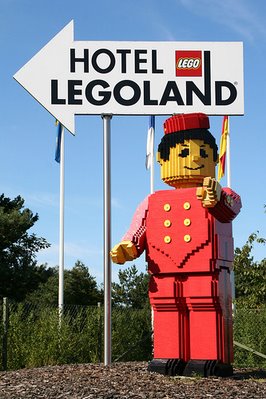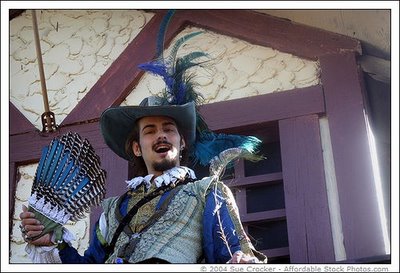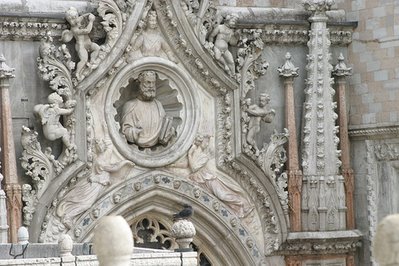Sunday, December 31, 2006
Year-end Euphemismania
Gerald Ford was not considered a great orator, but his first words as president in August, 1974, set a tone of healing and reassurance for a nation anxious to move beyond Watergate and the political demise of Richard Nixon.You knew that professional Republican fluffer George Will would get in on the act:"My fellow Americans, our long national nightmare is over," said President Ford. "Our Constitution works. Our great republic is a government of laws and not of men. Here, the people rule."
In the wake of his death, politicians from both political parties are recalling Gerald Ford's basic decency and the important change in tone he brought to the White House when he succeeded Richard Nixon.
President Bush was among those recalling Mr. Ford's contribution to national reconciliation in the wake of Mr. Nixon's resignation. "For a nation that needed healing, and for an office that needed a calm and steady hand, Gerald Ford came along when we needed him most," he said.
In 1976 Ford might have won a full term if he had been less statesmanlike: His pardon of Richard Nixon unquestionably hurt him politically, but unquestionably helped with national healing.To be fair, this euphemism has been incubating for a while. Here is Ford with Diane Sawyer back in 2001:
Sawyer: We've talked about the fact that you believed it was right, you felt that the Nixon situation was profoundly distracting to the country, you had to get it back on course. Nonetheless, when an aide walks in to you and says, "Mr. President, your popularity has just gone from 71 percent to 49 percent in a few days," were you shaken? Did you have any doubt?Mind you, Ford's 1979 autobiography was titled A Time to Heal, so we can assume that this euphemism has his imprimatur. Hmm. This one seems to be a kind of metaphor. A metaphor involves a comparison between two things: here, Ford's pardoning of Nixon for his various misdeeds is being compared to an act of healing. Hmm. What sorts of things do we normally seek to heal?Ford: I knew that it would be unpopular. It was more unpopular than I expected, but that did not change my mind. I felt then, as I feel today, the pardon of President Nixon was absolutely essential.
It was part of the healing process of the times in Washington and the country. We had gone through the Watergate tragedy. We had had the war in Vietnam. The country was torn apart. And it was absolutely essential that we step forward to try, in any way possible, to heal the—these wounds, so to speak. And so I granted the pardon because it was right then. And I'm pleased and honored that the Kennedy Library and Caroline and others in the family now agree with me.
- wounds
- scabs
- diseases
As a result of certain acts or omissions occurring before his resignation from the Office of President, Richard Nixon has become liable to possible indictment and trial for offenses against the United States. Whether or not he shall be so prosecuted depends on findings of the appropriate grand jury and on the discretion of the authorized prosecutor. Should an indictment ensue, the accused shall then be entitled to a fair trial by an impartial jury, as guaranteed to every individual by the Constitution.Oh! He's paid "the unprecedented penalty" of quitting his job! A trial will involve the horrors of debate! The tranquility will be lost! Oh, won't someone please think of the tranquility?It is believed that a trial of Richard Nixon, if it became necessary, could not fairly begin until a year or more has elapsed. In the meantime, the tranquility to which this nation has been restored by the events of recent weeks could be irreparably lost by the prospects of bringing to trial a former President of the United States. The prospects of such trial will cause prolonged and divisive debate over the propriety of exposing to further punishment and degradation a man who has already paid the unprecedented penalty of relinquishing the highest elective office of the United States.
Let's refresh our memory as to just what Richard Milhous Nixon stood accused of. Until today, I had also never actually read the Articles of Impeachment against him. Here is Article 1:
In his conduct of the office of President of the United States, Richard M. Nixon, in violation of his constitutional oath faithfully to execute the office of President of the United States and, to the best of his ability, preserve, protect, and defend the Constitution of the United States, and in violation of his consitutional duty to take care that the laws be faithfully executed, has prevented, obstructed, and impeded the administration of justice, in that:Here is Article 2:On June 17, 1972, and prior thereto, agents of the Committee for the Re-election of the President committed unlawful entry of the headquarters of the Democratic National Committee in Washington, District of Columbia, for the purpose of securing political intelligence. Subsequent thereto, Richard M. Nixon, using the powers of his high office, engaged personally and through his close subordinates and agents, in a course of conduct or plan designed to delay, impede, and obstruct the investigation of such illegal entry; to cover up, conceal and protect those responsible; and to conceal the existence and scope of other unlawful covert activities.
The means used to implement this course of conduct or plan included one or more of the following:
In all of this, Richard M. Nixon has acted in a manner contrary to his trust as President and subversive of constitutional government, to the great prejudice of the cause of law and justice and to the manifest injury of the people of the United States.
- making false or misleading statements to lawfully authorized investigative officers and employees of the United States;
- withholding relevant and material evidence or information from lawfully authorized investigative officers and employees of the United States;
- approving, condoning, acquiescing in, and counselling witnesses with respect to the giving of false or misleading statements to lawfully authorized investigative officers and employees of the United States and false or misleading testimony in duly instituted judicial and congressional proceedings;
- interfering or endeavouring to interfere with the conduct of investigations by the Department of Justice of the United States, the Federal Bureau of Investigation, the office of Watergate Special Prosecution Force, and Congressional Committees;
- approving, condoning, and acquiescing in, the surreptitious payment of substantial sums of money for the purpose of obtaining the silence or influencing the testimony of witnesses, potential witnesses or individuals who participated in such unlawful entry and other illegal activities;
- endeavouring to misuse the Central Intelligence Agency, an agency of the United States;
- disseminating information received from officers of the Department of Justice of the United States to subjects of investigations conducted by lawfully authorized investigative officers and employees of the United States, for the purpose of aiding and assisting such subjects in their attempts to avoid criminal liability;
- making or causing to be made false or misleading public statements for the purpose of deceiving the people of the United States into believing that a thorough and complete investigation had been conducted with respect to allegations of misconduct on the part of personnel of the executive branch of the United States and personnel of the Committee for the Re-election of the President, and that there was no involvement of such personnel in such misconduct: or
- endeavouring to cause prospective defendants, and individuals duly tried and convicted, to expect favoured treatment and consideration in return for their silence or false testimony, or rewarding individuals for their silence or false testimony.
Wherefore Richard M. Nixon, by such conduct, warrants impeachment and trial, and removal from office.
Using the powers of the office of President of the United States, Richard M. Nixon, in violation of his constitutional oath faithfully to execute the office of President of the United States and, to the best of his ability, preserve, protect, and defend the Constitution of the United States, and in disregard of his constitutional duty to take care that the laws be faithfully executed, has repeatedly engaged in conduct violating the constitutional rights of citizens, impairing the due and proper administration of justice and the conduct of lawful inquiries, or contravening the laws governing agencies of the executive branch and the purposed of these agencies.And here is Article 3:This conduct has included one or more of the following:
In all of this, Richard M. Nixon has acted in a manner contrary to his trust as President and subversive of constitutional government, to the great prejudice of the cause of law and justice and to the manifest injury of the people of the United States.
- He has, acting personally and through his subordinates and agents, endeavoured to obtain from the Internal Revenue Service, in violation of the constitutional rights of citizens, confidential information contained in income tax returns for purposed not authorized by law, and to cause, in violation of the constitutional rights of citizens, income tax audits or other income tax investigations to be intitiated or conducted in a discriminatory manner.
- He misused the Federal Bureau of Investigation, the Secret Service, and other executive personnel, in violation or disregard of the constitutional rights of citizens, by directing or authorizing such agencies or personnel to conduct or continue electronic surveillance or other investigations for purposes unrelated to national security, the enforcement of laws, or any other lawful function of his office; he did direct, authorize, or permit the use of information obtained thereby for purposes unrelated to national security, the enforcement of laws, or any other lawful function of his office; and he did direct the concealment of certain records made by the Federal Bureau of Investigation of electronic surveillance.
- He has, acting personally and through his subordinates and agents, in violation or disregard of the constitutional rights of citizens, authorized and permitted to be maintained a secret investigative unit within the office of the President, financed in part with money derived from campaign contributions, which unlawfully utilized the resources of the Central Intelligence Agency, engaged in covert and unlawful activities, and attempted to prejudice the constitutional right of an accused to a fair trial.
- He has failed to take care that the laws were faithfully executed by failing to act when he knew or had reason to know that his close subordinates endeavoured to impede and frustrate lawful inquiries by duly constituted executive, judicial and legislative entities concerning the unlawful entry into the headquarters of the Democratic National Committee, and the cover-up thereof, and concerning other unlawful activities including those relating to the confirmation of Richard Kleindienst as Attorney General of the United States, the electronic surveillance of private citizens, the break-in into the offices of Dr. Lewis Fielding, and the campaign financing practices of the Committee to Re-elect the President.
- In disregard of the rule of law, he knowingly misused the executive power by interfering with agencies of the executive branch, including the Federal Bureau of Investigation, the Criminal Division, and the Office of Watergate Special Prosecution Force, of the Department of Justice, and the Central Intelligence Agency, in violation of his duty to take care that the laws be faithfully executed.
Wherefore Richard M. Nixon, by such conduct, warrants impeachment and trial, and removal from office.
In his conduct of the office of President of the United States, Richard M. Nixon, contrary to his oath faithfully to execute the office of President of the United States and, to the best of his ability, preserve, protect, and defend the Constitution of the United States, and in violation of his constitutional duty to take care that the laws be faithfully executed, has failed without lawful cause or excuse to produce papers and things as directed by duly authorized subpoenas issued by the Committee on the Judiciary of the House of Representatives on April 11, 1974, May 15, 1974, May 30, 1974, and June 24, 1974, and willfully disobeyed such subpoenas. The subpoenaed papers and things were deemed necessary by the Committee in order to resolve by direct evidence fundamental, factual questions relating to Presidential direction, knowledge or approval of actions demonstrated by other evidence to be substantial grounds for impeachment of the President. In refusing to produce these papers and things Richard M. Nixon, substituting his judgment as to what materials were necessary for the inquiry, interposed the powers of the Presidency against the the lawful subpoenas of the House of Representatives, thereby assuming to himself functions and judgments necessary to the exercise of the sole power of impeachment vested by the Constitution in the House of Representatives.Behold this great litany of misdeeds, and then ask yourself: What exactly is healing about letting a man who does such things escape justice? It's healing, I suppose, in somewhat the same way that it's healing for a rape victim to refuse to press charges against a rapist: it spares the victim the agony of public exposure, the ordeal of a drawn-out trial, the threat of possible reprisal. I understand how that's "healing" of a kind. But it still lets a rapist go free.In all of this, Richard M. Nixon has acted in a manner contrary to his trust as President and subversive of constitutional government, to the great prejudice of the cause of law and justice, and to the manifest injury of the people of the United States.
Wherefore, Richard M. Nixon, by such conduct, warrants impeachment and trial, and removal from office.
No. I cannot buy in to this healing bullshit. President Ford may have prattled about how ours is "a government of laws and not of men," but his actions in pardoning Nixon suggest exactly the opposite—and that the entire mainstream media seems determined to pretend otherwise this week does no credit to the nation. As far as I am concerned, there is a direct line between Nixon's unhandcuffed departure from the White House and the mess we are in today, beset as we are with a president who violates laws, thumbs his nose at Congress and the Constitution, exploits national tragedies, starts wars on false pretenses—but then, hey, he's had Ford Administration alumni as his right-hand men. Perhaps Jonathan Tasini is engaging in wishful thinking when he speculates that we wouldn't be in the same mess today if Gerald Ford had let Congress whack Richard Nixon with a rolled-up Constitution and rub his nose in the mess he'd made of the national trust; we'll never know. I barely remember the Nixon days—one of my earliest memories, in fact, is of my parents, proud New Deal Democrats, applauding with delight and repeatedly using the word crook as he gave his resignation speech—but I do remember the lesson I took away from the fact that, despite all the ways in which Nixon had abused his powers in the highest office in the land, he had gotten off scot free. Nowadays, I think I'd phrase it like this: Morality is for the little people. Or like this: IOKIYAR. I took away a valuable lesson in the facts of hypocrisy. I learned that, however much politicians may prattle about virtues and values and principles and moral absolutes, few of them are really willing to live by such things when doing so becomes inconvenient. In fact, I have to backhandedly thank Gerald Ford for teaching us such a valuable early lesson in duplicity; for some of us, I'm sure it came in handy during the next 2-3 decades, when virtuous talk and vicious action became de rigeur for so many on the Right. For those paying attention, Ford helped spur a healthy skepticism about politicians and a newfound appreciation for the dismaying gap between what they say and what they do. Alas that this is not what he means by healing.
So, I beseech you: If you have the stomach for it, watch the Ford coverage this week and count the number of times you hear words like heal or healing or healed. If it helps, you could turn it into a drinking game:
"You know, Katie, President Ford healed the nation after Watergate and Vietnam."Take a shot every time you hear heal*, and my guess is you'll be unconscious within an hour. That, or the chemical alteration might produce an escalating counterfactual comprehension of how exactly you go from "By pardoning Richard Nixon, Gerald Ford let a criminal subverter of the Constitution escape justice" to "By pardoning Richard Nixon, Gerald Ford made the big national boo-boo all better," perhaps in a manner analogous to "The Four Stages of Tequila" I remember seeing on a t-shirt:
*GLUG*
"Well, Ford's administration sought to heal the nation, George."
*SLURP*
"Ford will be remembered for helping to heal our national wounds."
*SWILL*
etc.
- I'm good-looking.
- I'm bulletproof.
- I'm invisible.
- I'm a great healer for pardoning a criminal president who broke laws, subverted the Constitution, and violated the trust of the American people, even though by doing so I've made it even harder for Americans to ever trust their government again.
Anyway. I wish y'all a safe New Year's Eve and a Happy New Year. I'll be back tomorrow with some Happy New Year Random Flickr Blogging.
Tuesday, December 26, 2006
Random Flickr Blogging #1225: Happy Holidays Flickr Blogging









Speaking of Alexander Calder, check out the Virtual Calder Mobile when you get a chance. It's almost as much fun as the Mondrimat!
Random Flickr Blogging explained here; photos from here, here, here, here, here, here, here, here, here, and here.
Labels: Random Flickr Blogging
Monday, December 25, 2006
Tagged
- Find the nearest book
- Name the book
- The author
- Turn to page 123
- Go to the fifth sentence on the page
- Copy out the next three sentences and post to your blog.
- Tag three more folks.
One would think wrong. CBS knows that Walter Cronkite plays better on television than the Milky Way. And Jimmy Swaggart plays better than God.Hmm. Those don't make a lot of sense all by themselves, so let's give them some context. First, if I had to summarize Postman's thesis in a few sentences, here's how I'd do it:
All types of media have built-in biases—which means that they are better at communicating some ideas and worse at communicating others. Television comes with built-in biases toward the shallow, the trivial, and the entertaining. Therefore, television is not a good medium for doing the kinds of things that are necessary for conducting the public business of democracy: serious, patient, methodical, thorough, rational presentation of information, weighing of evidence, and evaluation of arguments. Unfortunately, television has become the dominant epistemology (way of knowing) of our culture and the primary forum in which our public business is conducted. To the extent that our culture depends on television as its main source of information and its primary forum for important public business, we are civilizationally fucked.Second, to put the three sentences above in context, they come from the chapter where Postman discusses the effect of television on religion. This seems strangely apropos for a Christmas holiday marked by manufactured wars and orgies of shopping, so forgive me for quoting a bit at length:
There are, of course, counterarguments to the claim that television degrades religion. Among them is that spectacle is hardly a stranger to religion. If one puts aside the Quakers and a few other austere sects, every religion tries to make itself appealing through art, music, icons and awe-inspiring ritual. The aesthetic dimension to religion is the source of its attraction to many people. This is especially true of Roman Catholicism and Judaism, which supply their congregants with haunting chants; magnificent robes and shawls; magical hats; wafers and wine; stained-glass windows; and the mysterious cadences of ancient languages. The difference between these accoutrements of religion and the floral displays, fountains and elaborate sets we see on television is that the former are not, in fact, accoutrements but integral parts of the history and doctrines of the religion itself; they require congregants to respond to them with suitable reverence. A Jew does not cover his head at prayer because a skull cap looks good on television. A Catholic does not light a votive candle to improve the look of the altar. Rabbis, priests and Presbyterian ministers do not, in the midst of a service, take testimony from movie stars to find out why they are religious people. The spectacle we find in true religions has as its purpose enchantment, not entertainment. The distinction is critical. By endowing things with magic, enchantment is the means through which we may gain access to sacredness. Entertainment is the means through which we distance ourselves from it.I wonder what Postman would have made of the whole "Left Behind" phenomenon—a made-for-TV apocalypse if ever there was one. Or of a "Christian" video game wherein you can slaughter scores of people and then just pray your way back to easy grace. He probably wouldn't be all that surprised to find such things coming out of a movement that takes a rich, enormous, complex book and fixates on its most garish bits.The reply to this is that most of the religion available to us on television is "fundamentalist," which explicitly disdains ritual and theology in favor of direct communication with the Bible itself, that is, with God. Without ensnaring myself in a theological argument for which I am unprepared, I think it both fair and obvious to say that on television, God is a vague and subordinate character. Though His name is invoked repeatedly, the concreteness and persistence of the image of the preacher carries the clear message that it is he, not He, who must be worshipped. I do not mean to imply that the preacher wishes it to be so; only that the power of a close-up televised face, in color, makes idolatry a continual hazard. Television is, after all, a form of graven imagery far more alluring than a golden calf. I suspect (though I have no external evidence of it) that Catholic objections to Bishop Fulton Sheen's theatrical performances on television (a few years back) sprang from the impression that viewers were misdirecting their devotions, away from God and toward Bishop Sheen, whose piercing eyes, awesome cape and stately tones were as close a resemblance to a deity as charisma allows.
Television's strongest point is that it brings personalities into our hearts, not abstractions into our heads. That is why CBS' programs about the universe were called "Walter Cronkite's Universe." One would think that the grandeur of the universe needs no assistance from Walter Cronkite. One would think wrong. CBS knows that Walter Cronkite plays better on television than the Milky Way. And Jimmy Swaggart plays better than God. For God exists only in our minds, whereas Swaggart is there, to be seen, admired, adored. Which is why he is that star of the show. And why Billy Graham is a celebrity, and why Oral Roberts has his own university, and why Robert Schuller has a crystal cathedral all to himself. If I am not mistaken, the word for this is blasphemy.
Anyway. I'm not going to tag anybody, as there aren't many bloggers I know well enough to feel comfortable doing so. The madness ends here.
I'll be back either later today or early tomorrow with some holiday Random Flickr Blogging. Until then, Happy Everything!
Wednesday, December 20, 2006
Random Flickr Blogging #9684; or, Random Carl Sagan Memorial Flickr Blogging
Bruce Springsteen once spoke of the snare drum shot that opens Bob Dylan's "Like a Rolling Stone" as sounding "like somebody had kicked open the door to your mind." I was delighted when I first encountered Springsteen's simile, as for some time I've used a similar simile to describe the effect of watching Monty Python's Flying Circus when it first ran in America on PBS back in the 1970s. For example, I still remember the first time I saw "The News for Parrots" sketch. It's a relatively simple idea on paper: imagine a typical nightly newscast, only slanted toward the interests of parrots. We see typical human newsy events: an automobile accident; a meeting of governmental ministers. However, the focus is on the parrotesque: no parrots were involved in the car crash; none of the important ministers went in the cage, or swung on the little trapeze, or ate any of the nice millet seed, yum yum. This is a nifty little collision of frameworks in its own right, but I still think that what comes next is one of the funniest things I have ever see in forty-mumblth years on this planet. The news ends, and now it's time for the program for parrots: Part Three of A Tale of Two Cities, specially adapted for parrots by "Joey-boy." The news reader (the oh-so-sincere Michael Palin) recounts the story so far: Dr. Manette spent 18 years in the Bastille, Lucy loves Charles Darnay, etc. We see a caption: "London 1793." The camera fades in on a thoroughly believable period scene, period costumes—that Hazel Pethig did more for the Pythons' art than many of us realize, I fear. Graham Chapman enters as Darnay, all dour and Dickensian, and stands somberly at the foot of the ailing Dr. Manette's bed. The scene is silent and serious for a second. Then, Chapman turns and squawks, in his best parrot voice, "'ello! 'ello!" Carol Cleveland as Lucy answers: "'ello! 'ello!" Dr. Manette (Terry Jones) offers similar greetings. Chapman responds with "oo's a pretty boy, then?" In moments, the somber Dickensian scene has devolved into hysterical wide-eyed squawking and screeching. The whole sketch is over in seconds, but what seconds.
I still remember literally rolling on the floor, laughing uncontrollably, the first time I saw this sketch. It wasn't just that it was funny (the synopsis above cannot do it justice); I was also laughing because, as I watched, I could feel the Pythons kicking doors open in my mind—and I liked that very much. It had not occurred to me that you could do such things to Dickens, to PBS melodramas, to the TV news; it had not occurred to me that you could slam things like these and parrots and silly walks and ministries and archaeology and Westerns and musicals and upper-class twits and Hitler (sorry, Hilter) and election night specials and cannibalism and undertakers and Jean-Paul Sartre and all sorts of other things together in all sorts of wacky ways—and derive enjoyment from the odd collisions and connections. I.A. Richards once said, "The mind is a connecting organ; it works only by connecting and it can connect any two things in an indefinitely large number of different ways." The Pythons often made me roar with laughter (and they still do) because what they did was funny, but they also made me roar with laughter because they were waking me up to the awesome connective power of the human mind—including my human mind. That's some of what I remember feeling as I rolled on the floor laughing at how the Pythons had bodied forth the odd conceit of a Dickens masterwork adapted for bird brains: look at what these mind things can do with reality when we really let 'em rip. The Pythons taught us lesson after lesson in this power, and for that I could never thank them enough.
Carl Sagan's Cosmos series did something similar for me when I first saw it, too, on PBS back in the 1970s. (It's depressing, isn't it, to think that once upon a time PBS regularly brought us things like Monty Python's Flying Circus and Cosmos? Nowadays it seems like whenever I turn it on down here, all I see is Andre Rieu or Celtic Softcore—um, I mean Celtic Woman.) Cosmos is the first place where I remember having hammered home to me, through Sagan's canny connection of imagery, music, and information, the idea that those things that I studied as separate subjects in the ordeal called school—math and biology and physics and chemistry and history and literature and so on—weren't really separate at all but integral parts of a grand, grand adventure: the human quest to understand the universe and our place within it. Cosmos helped me see the connection between the stuff I was learning about in school and the great path of wonder and inquiry stretching back centuries and walked by the likes of Socrates, Leonardo, Shakespeare, and Einstein. Cosmos made me realize that that path was part of my birthright as a human being—it's a great legacy that belongs to all of us—and that I could walk it, too, and in fact already was as in my own small way as I learned in school about things like the Pythagorean theorem and atomic theory and the scientific and Socratic methods. I had always been a nerdy, brainy kid who "liked school"—at least the parts of it that involved actual learning—but Carl Sagan and Cosmos helped me to see education as something, dare I say, sacred and liberating and glorious. Carl Sagan helped me to realize that that sense of wonder I felt about the world and my place in it was not something weird and alien but rather something that connected me to a great tradition stretching back through the great artists, scientists, and philosophers of the human past—and forward into the human future in which I would share. In his way, Carl Sagan helped me to appreciate the power of the human mind, too, and for that I could never thank him enough, either.
But here we are, ten years after his death, and there's Random Flickr Blogging to be done, so let me offer some thanks to Carl Sagan in my own small, strange way. One of my favorite odd facts about Sagan is that he chaired the committee that compiled the Golden Records sent out with the Voyager probes in 1977. These contain a selection of images from Earth, greetings from Earth in a plethora of languages, and of course a delightful selection of Earth music, from aboriginal chants to Bach to Peruvian panpipes to Chuck Berry. The hope is that someday, should Voyager 1 or 2 ever be encountered by another intelligent species somewhere out there in the cosmos, the Golden Records will give their finders some idea of Who We Are. I cannot imagine what the process of collection and selection for these records must have been like—how do you sum up humanity in a few dozen sounds, songs, and images?—but for this week's Random Flickr Blogging, I thought I'd try imagining what might happen if you put some random Flickr photos through the process.
Carl Sagan, you gave me and thousands of others a gift that we could never repay; we can only try to pass it on in our own various ways. Thank you for helping to enlighten us, and for stretching our minds, and for reminding us that our sense of wonder is one of the best things we have. Thank you for sharing your own sense of wonder with us in works written for us—and not just for a tiny audience of fellow scientists. Thank you for all you did to help kindle my sense of wonder all those years ago. Thank you for helping to kick open those doors in my mind that have never closed. Thank you.






Random Flickr Blogging explained here; photos from here, here, here, here, here, here, and here.
Labels: Random Flickr Blogging
Wednesday, December 13, 2006
Something I Did Not Know about Peter Boyle
Through his wife, a friend of Yoko Ono, the actor became close friends with John Lennon. "We were both seekers after a truth, looking for a quick way to enlightenment," Boyle once said of Lennon, who was best man at his wedding.Actually, my favorite performance of Boyle's is probably his title role in one of the all-time greatest X-Files episodes ever, "Clyde Bruckman's Final Repose," in which he plays a haunted, lonely, world-weary clairvoyant whose gift is really a curse. Boyle embodies Clyde Bruckman with a disconcerting mix of wit, pain, and resignation that suits the odd subject matter perfectly—and which still leaves me awestruck with its apparent effortlessness years later. But I guess that's not such a stretch for a guy who could pull off Frankenstein's monster singing "Puttin' on the Ritz."
Rest in peace.
Sunday, December 10, 2006
Claude Monet Watches a Nighttime Shuttle Launch
 I know: Claude Monet painting a nighttime Shuttle launch would be a lot more interesting, but believe it or not, that's the best photo I got. Sue me.
I know: Claude Monet painting a nighttime Shuttle launch would be a lot more interesting, but believe it or not, that's the best photo I got. Sue me.
Tuesday, December 05, 2006
Random Flickr Blogging #3352; or, Happy Birthday to jules Flickr Blogging










(Oops, almost forgot: Random Flickr Blogging explained here; photos from here, here, here, here, here, here, here, here, here, here, and here.)
Labels: Random Flickr Blogging
Friday, December 01, 2006
Random Bald Eagle Blogging
 Space Shuttles, yes; bald eagles, no. But there it was.
Space Shuttles, yes; bald eagles, no. But there it was.


